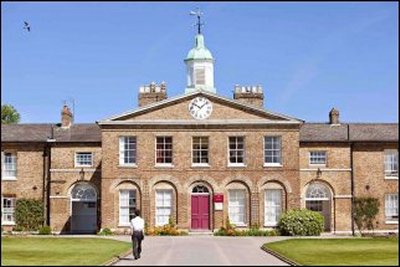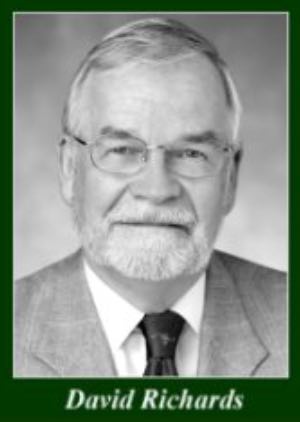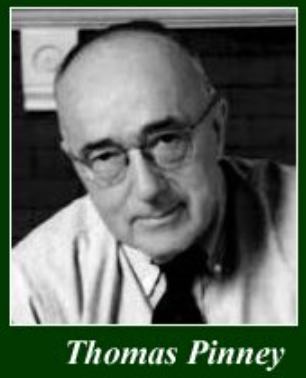 We offer a meeting place for people around the world who enjoy Kipling’s writings, in Europe, in America, in India and beyond, at home in an armchair or in reading groups. He was one of the world’s great story-tellers, vivid, magical, witty and memorable. If you know little of his writings, you have a treat in store.
We offer a meeting place for people around the world who enjoy Kipling’s writings, in Europe, in America, in India and beyond, at home in an armchair or in reading groups. He was one of the world’s great story-tellers, vivid, magical, witty and memorable. If you know little of his writings, you have a treat in store.
We hold five meetings a year and readings from his poems and tales, streamed world-wide on Zoom. We have a triannual Journal and a Library for members and researchers. We encourage children to read him, and write stories for themselves. We have a JiscMail email discussion group.
We host an annual world-wide writing competition.
We offer a friendly welcome to new members, from anywhere, of any age. You can join us here. For students of any age the cost is £11 a year.
The Council
The society is run by a council of 14 members. The current council and other honorary officers are listed here.
Looking for a speaker on Kipling?
We may be able to arrange for someone to visit your organisation to give a talk about Rudyard Kipling. Topics potentially available include ‘Rudyard Kipling – Life and Works’, ‘Rudyard Kipling: Man of India and Mason’, ‘Kipling and Sussex’, ‘Kipling on Film’, ‘Rudyard Kipling and the Children’, ‘Have you ever Kippled?’, ‘Kipling’s Women’, ‘My Boy Jack’, ‘Kipling And War’ and ‘Kipling, the Misunderstood Genius’. Please contact the Secretary, Mike Kipling, for an initial discussion (michaelrkipling@gmail.com or 07801 680516)
Why read Kipling in the 21st century?
Some answers from our members
 Ray Beck; Carton printer for many years, plays the drum in a band and the mandolin, sets Kipling poems to music, read “The Mark of the Beast” long ago and has never tired of Kipling since.
Ray Beck; Carton printer for many years, plays the drum in a band and the mandolin, sets Kipling poems to music, read “The Mark of the Beast” long ago and has never tired of Kipling since.
‘He describes in vivid detail the world as it was a hundred to a hundred and fifty years ago, that is now lost to us forever. His characters, whether of the highest rank in the land, or farm labourers, are believable and realistic, and will almost become actual people in your imagination. His tales encompass humour, history, the tragic and the supernatural and much, much more. His storylines are often based on fact and graphically depict the fascinating times in which he lived.’
 Sarah LeFanu: writer, biographer, broadcaster, teacher. Has read Kipling for many years, recently published “Something of Themselves” about Kipling, Mary Kingsley and Conan Doyle in South Africa during the Boer War.
Sarah LeFanu: writer, biographer, broadcaster, teacher. Has read Kipling for many years, recently published “Something of Themselves” about Kipling, Mary Kingsley and Conan Doyle in South Africa during the Boer War.
‘He writes of loss and grief, not in their generality but in heart-stopping particularity; the way the young characters in his stories – not just Mowgli but also Kim and Stalky, and Taffy of the Just So Stories – inhabit that tender place that once existed in all of us between innocence and experience … his verse exults in intricate patterns of sound and rhyme and metre, so that, as Mary Kingsley put it, his words ‘sing’.’
 Alastair Wilson: retired naval officer and naval historian, given a set of Kipling for his first birthday, read the Jungle Books, Puck Stories, Stalky & Co. and the rest, moved to Sussex at age twelve a few miles from the old Kipling house, took his collection everywhere he went, Editor of Kipling diaries and of many notes in our New Readers’ Guide.
Alastair Wilson: retired naval officer and naval historian, given a set of Kipling for his first birthday, read the Jungle Books, Puck Stories, Stalky & Co. and the rest, moved to Sussex at age twelve a few miles from the old Kipling house, took his collection everywhere he went, Editor of Kipling diaries and of many notes in our New Readers’ Guide.
‘Because he is such a good story-teller, whose tales are timeless. He illustrates and illuminates so believably the people, the times, and the circumstances he is writing about.’
 John Walker: The Society’s Librarian, tutor, former headmaster, keen traveller, motoring historian, motoring enthusiast, never happier than when under a car.
John Walker: The Society’s Librarian, tutor, former headmaster, keen traveller, motoring historian, motoring enthusiast, never happier than when under a car.
‘For me, Kipling is still the best source for quotable quotes. He expresses truths, fundamental or familiar, with such skill that you find yourself nodding in approval – as you commit the words to memory. Perhaps I should sign this ‘Tomlinson’.
 Christopher Morrison: retired naval officer, trainer, sailor, enthused by Kipling’s verse at age ten, loved the poems ever since and likes to read them aloud.
Christopher Morrison: retired naval officer, trainer, sailor, enthused by Kipling’s verse at age ten, loved the poems ever since and likes to read them aloud.
‘His poetry has an inexorable rhythm which leads the reader perfectly through the many changes of pace and sentiment which Kipling packs into the words, and then rings out in the heart of the reader … His journalist’s instinct for the truth and ‘the way things are’, and his innate compassion and respect for the underdog …. And deeper still he puts into words those aspirations, fears and dreams that we all have but can’t perhaps recognise or articulate.’
Mandalay
By the old Moulmein Pagoda, lookin’ lazy at the sea,
There’s a Burma girl a-settin’, and I know she thinks o’ me;
For the wind is in the palm-trees, and the temple-bells they say:
“Come you back, you British soldier; come you back to Mandalay! ”
Come you back to Mandalay,
Where the old Flotilla lay:
Can’t you ‘ear their paddles chunkin’ from Rangoon to Mandalay ?
On the road to Mandalay,
Where the flyin’-fishes play,
An’ the dawn comes up like thunder outer China ‘crost the Bay!
‘Er petticoat was yaller an’ ‘er little cap was green,
An’ ‘er name was Supi-yaw-lat – jes’ the same as Theebaw’s Queen,
An’ I seed her first a-smokin’ of a whackin’ white cheroot,
An’ a-wastin’ Christian kisses on an ‘eathen idol’s foot:
Bloomin’ idol made o’ mud
Wot they called the Great Gawd Budd
Plucky lot she cared for idols when I kissed ‘er where she stud!
On the road to Mandalay…
When the mist was on the rice-fields an’ the sun was droppin’ slow,
She’d git ‘er little banjo an’ she’d sing “Kulla-lo-lo!
With ‘er arm upon my shoulder an’ ‘er cheek agin my cheek
We useter watch the steamers an’ the hathis pilin’ teak.
Elephints a-pilin’ teak
In the sludgy, squdgy creek,
Where the silence ‘ung that ‘eavy you was ‘arf afraid to speak!
On the road to Mandalay…
But that’s all shove be’ind me – long ago an’ fur away
An’ there ain’t no ‘busses runnin’ from the Bank to Mandalay;
An’ I’m learnin’ ‘ere in London what the ten-year soldier tells:
“If you’ve ‘eard the East a-callin’, you won’t never ‘eed naught else.”
No! you won’t ‘eed nothin’ else
But them spicy garlic smells,
An’ the sunshine an’ the palm-trees an’ the tinkly temple-bells;
On the road to Mandalay…
I am sick o’ wastin’ leather on these gritty pavin’-stones,
An’ the blasted English drizzle wakes the fever in my bones;
Tho’ I walks with fifty ‘ousemaids outer Chelsea to the Strand,
An’ they talks a lot o’ lovin’, but wot do they understand?
Beefy face an’ grubby ‘and –
Law! wot do they understand?
I’ve a neater, sweeter maiden in a cleaner, greener land!
On the road to Mandalay…
Ship me somewheres east of Suez, where the best is like the worst,
Where there aren’t no Ten Commandments an’ a man can raise a thirst;
For the temple-bells are callin’, an’ it’s there that I would be
By the old Moulmein Pagoda, looking lazy at the sea;
On the road to Mandalay,
Where the old Flotilla lay,
With our sick beneath the awnings when we went to Mandalay!
O the road to Mandalay,
Where the flyin’-fishes play,
An’ the dawn comes up like thunder outer China ‘crost the Bay!
The Kipling Society today
 We are a world-wide community of Kipling readers, with on-line access to what people are saying today about him and his writings, and members on every continent.
We are a world-wide community of Kipling readers, with on-line access to what people are saying today about him and his writings, and members on every continent.
Our library at Haileybury College (right) houses a treasure-trove for scholars, writers, programme-makers, and interested readers. There are many editions of Kipling’s works both rare and familiar, criticism, biographies, translations, photographs, cuttings, and printed ephemera.
At triannual meetings in London we have speakers from many different countries. We stream these talks world-wide to our members on Zoom

World-wide Kipling readings
Since activity was restricted by the pandemic, we have been holding sessions for members on Zoom at which people read some of their favourite extracts from Kipling’s poems and stories.
Some of our mainstays
 David Alan Richards is President of the Society. He is the author of the most recent and most definitive bibliography of Rudyard Kipling, an indispensable guide to his works for scholars and collectors.
David Alan Richards is President of the Society. He is the author of the most recent and most definitive bibliography of Rudyard Kipling, an indispensable guide to his works for scholars and collectors.
A lawyer by profession, based in New York, he has long collected and studied Kipling’s works. His collection, now gifted to Yale University, is the most comprehensive ever assembled. As well as the bibliography, published in 2010, he has written several accounts of Kipling’s writings.
 Andrew Lycett is the author of the deeply researched biography of Rudyard Kipling, published in 1999, which has become a standard work of reference for scholars and Kipling readers.
Andrew Lycett is the author of the deeply researched biography of Rudyard Kipling, published in 1999, which has become a standard work of reference for scholars and Kipling readers.
A former foreign correspondent, he has also published biographies of Dylan Thomas, Conan Doyle, Ian Fleming, and Wilkie Collins, and a series of collections of Kipling stories, articles, and verse.
 Jan Montefiore has edited the Kipling Journal since June 2013.
Jan Montefiore has edited the Kipling Journal since June 2013.
Professor of 20th Century English Literature at the University of Kent, she is the author of many studies, including Rudyard Kipling (Northcote House, 2007), and has edited In Time’s Eye, Essays on Rudyard Kipling (Manchester University Press, 2013). She chairs the Society’s Council.
She has directed four international Kipling conferences including ‘Kipling in India: India in Kipling’, jointly with Professor Harish Trivedi (below).
 Thomas Pinney is Professor of English, emeritus, at Pomona College, California.
Thomas Pinney is Professor of English, emeritus, at Pomona College, California.
He is the editor of the comprehensive Cambridge Edition of the poems of Rudyard Kipling (2013), of the six-volume collection of the letters of Rudyard Kipling (Macmillan 1990-2004), of Kipling’s autobiography, and of a number of volumes of his uncollected articles and speeches, including The Cause of Humanity and other stories (2019)
 Harish Trivedi has been Professor in the Department of English, Delhi University (1969-2012) and Visiting Professor at the Universities of Chicago (1999, 2011) and London (2002-2003).
Harish Trivedi has been Professor in the Department of English, Delhi University (1969-2012) and Visiting Professor at the Universities of Chicago (1999, 2011) and London (2002-2003).
He is the author of Colonial Transactions: English Literature and India (Manchester 1995), and has a particular interest in postcolonial studies.
He edited Kim for Penguin Classics in 2011, and in April 2016 was the joint Conference Director with Janet Montefiore of ‘Kipling in India: India in Kipling’ at the Indian Institute of Advanced Study in Shimla. The book of the conference will be available after Christmas.
 Daniel Karlin is Winterstoke Professor of English at the University of Bristol.
Daniel Karlin is Winterstoke Professor of English at the University of Bristol.
He has a particular interest in American literature, Robert Browning, Marcel Proust, Bob Dylan and Rudyard Kipling. He has been a frequent contributor to the Kipling Journal, and Kipling conferences. He edited Rudyard Kipling, a critical edition of the major works (Oxford, 1999).
 Harry Ricketts is a poet, biographer, editor, anthologist, critic, literary scholar and cricket writer. He is Professor of English Literature in the Victoria University of Wellington, New Zealand.
Harry Ricketts is a poet, biographer, editor, anthologist, critic, literary scholar and cricket writer. He is Professor of English Literature in the Victoria University of Wellington, New Zealand.
He has published around thirty books, including two widely read biographies, Rudyard Kipling: The Unforgiving Minute and Strange Meetings: The Lives of the Poets of the Great War, eleven collections of poems (most recently, Winter Eyes), and a number of anthologies.
Joining the Society
Follow either of these links
Members of The Kipling Society have unique access to the following…
Joining the Kipling Society or Renewing your Subscription
Images used on this site
Currently under construction, but please follow this link